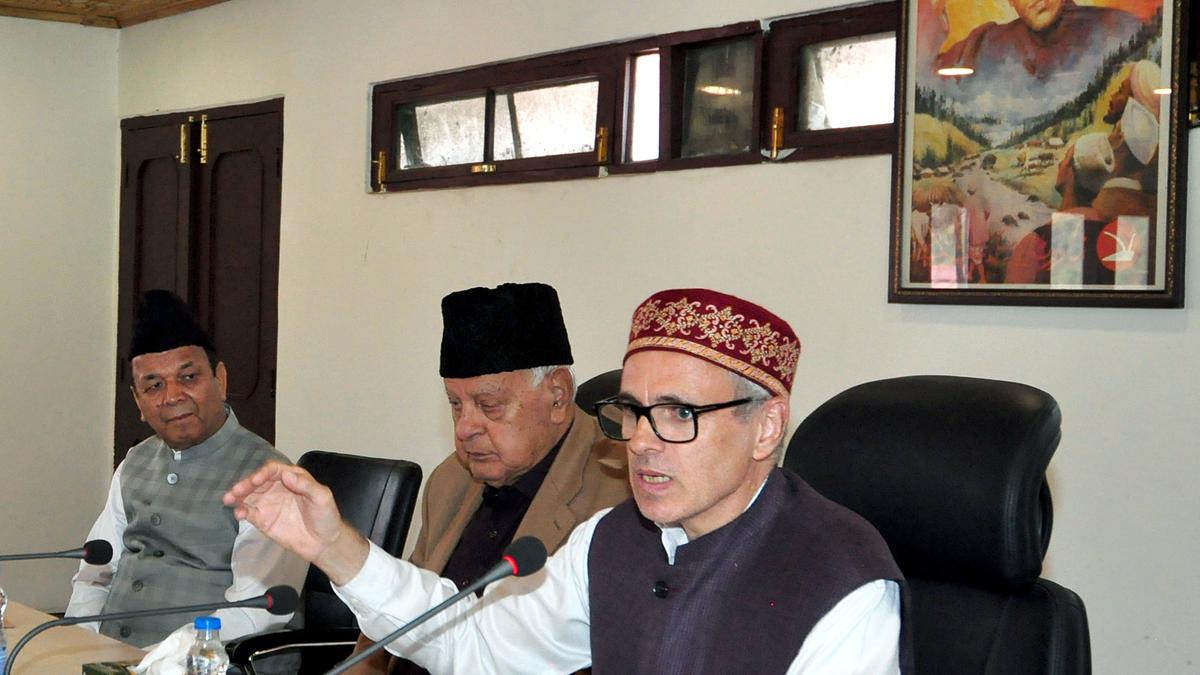National Conference vice president Omar Abdullah and president Faroof Abdullah at the party headquarters in Srinagar
| Photo Credit: ANI
Jammu and Kashmir has long been a stronghold for regional parties. In the recent elections, the National Conference (NC)-Congress alliance, which performed well in the Kashmir Valley, is set to form the government, while the BJP did extremely well in the Jammu region. The growing fatigue with bureaucratic governance and a lack of representation in the legislature has driven voters to actively seek leaders and parties that resonate with their needs. In this context, the Lokniti-CSDS survey sought to understand how leadership and party preference influenced voting decisions.
Importance of party
In our survey, party loyalty emerged as the most significant factor influencing voter decisions, with nearly half the voters citing it as their primary consideration. Nearly two-fifths of the voters gave importance to local candidates. Surprisingly, only a small fraction (2%) said that their vote was determined primarily by the chief ministerial candidate (Table 1).
The BJP had the strongest impact as a party, with nearly seven in 10 of its voters identifying party as their top consideration. Similarly, Congress and National Conference voters also demonstrated strong party loyalty, with around three-fifth of their voters prioritising the party over the local candidate. Other regional parties, such as the Jammu and Kashmir Apni Party and the Awami Ittehad Party, saw a different trend, though — voters were relatively more focused on local candidates than the party (Table 2).
Omar Abdullah emerged as the most popular candidate for Chief Minister, with nearly one-third of the voters favouring him. Mehbooba Mufti held a distant second place. Nearly one-fourth of voters did not disclose their preferred chief ministerial candidate (Table 3).
Over two in five voters expressed a lack of trust in popular leaders, barring Mr. Abdullah, fuelled by suspicions that some of them may have ties with the BJP. Over half the voters expressed confidence in Mr. Abdullah’s leadership. His focus on restoring statehood and advocating local concerns during his campaign strongly resonated with the electorate.
The best bet
Other leaders such as Farooq Abdullah (42%) also garnered modest levels of trust, indicating that both the leaders of the NC are the people’s best bet. Half the voters said that they did not trust Ms. Mufti’s leadership at all. The distrust of the leaders of the Kashmir Valley in Jammu and vice versa was evident.
Vibha Attri and Devesh Kumar are researchers at Lokniti-CSDS
Published – October 11, 2024 02:05 am IST
